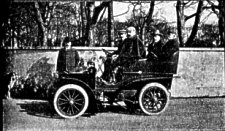
[From 1905 Examiner Annual]
THE AUTOMOBILE CLUB of Great Britain decided early in 1904 to hold in the Isle of Man the eliminatory trials, with the object if selecting British motor cars and drivers to compete in the great international motor race for the Gordon-Bennett Challenge Cup. Mr. Julian Orde, secretary of the club, came to the Island with his Wolseley touring car, and quickly settled upon a course. In the subjoined photograph Mr.Orde, along with the Lieut.-Governor (Lord Raglan) and a party, are about to set off from Government House for a run along certain of the Manx roads which had been suggested as being suitable for the holding of the trials.
Photographed near Government House, Onchan.

Mr. G. Drinkwater. Mr. Orde. Deemster Kneen.Lord Raglan. Col. Freeth.
The course eventually determined upon commenced at the Quarter Bridge and was by way of Ballasalla and Castletown, through Foxdale, past Glen Helen to Ballaugh ; thence byway of the Sandy Road into Ramsey, and back to the Quarter Bridge via the New Mountain Road. Altogether, the distance covered by the cars in going round the course was 51 miles 1 furlong. In order to legalise the closing of the roads to ordinary traffic during the trial, a special Act of Tynwald was passed, and in connection with the passage of the measure a record was accomplished, as it went through both branches of the Legislature in one day in all its stages, and was signed in Tynwald on the day following, while upon the Royal Assent being obtained a special Tynwald was held at St. Johns, and the Act was promulgated. The principal trial took place on the 10th May, when the following drivers and cars competed :-Napiers (drivers, S. F. Edge, J. W. Stocks, Hargreaves, Earp, and Col, Mayhew), Wolseleys: (Muir, Girling, and Jamott). Darracqs: (Hemery, Edmond, and Rawlinson) Great crowds witnessed the trials from various points of vantage. The cars traversed the course five times, and those that finished were "clocked " on completion of the fifth round, as follows:-Earp (Napier), 7 hrs. 26 mins. 5 secs.; Girling (Wolseley), 7 hrs. 29 mins. 59 secs. ; Edge (Narpier), 7 hrs. 33 mins. 41 secs. ; Stocks (Napier), 7 hrs. 46 wins. 20 secs. ; Jarrott (Wolseley), 7 hrs. 51 mins. 10 secs Hargreaves (Napier), 8 hrs. 57 mins.3 secs. On the following day the hill-climbing tests took place on a hill rising from from Lewaigue to Maughold Church. The best performances were those ot Edge, Earp, and Girling. On Thursday the speed tests took place over a kilometre course on Douglas Promenade, and again Edge, Earp, and Girling excelled. Unfortunately Harp in returning after the fast test ran into the wall of Villa Marina and smashed his car, while he and his brother sustained serious injuries and had to be removed to the Hospital. As as result of the trials Edge (Napier), Girling (Wolseley), and Jarrott (Wolseley) were selected to represent the United Kingdom in the Gordon-Bennett race for 1904. But for his accident Earp would have been selected. The international race was held on June 17th near Hamburg. None of the British competitors were placed, the race being won by France, while German cars took second and third places.-The photo on previous page is reproduced by permission of The Automotor Journal
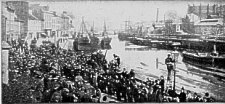
THE MOTOR TRIALS.
Scene on Douglas Quay, May 9th, 1904, when the Weighing of the Motor Cars took place. J. W. Stocks leaving.

CRONK-NE-MONA (Onchan).
This scene, at the, beginning of the Mountain Road from Douglas to Ramsey, was brought into prominence in connection with the Motor Trials, 1904, through appearing in some of 'the illustrated papers. The cars descended the steep gradient from Keppel Gate at a rate of speed suggestive of lightning flashes,

THE MOTOR TRIALS - EARP DESCENDING BRAY HILL.
The velocity of the cars on steep descents along the course was marvellous. Car No. 6 (Earp) is shown in the picture. The concourse of people is typical of the gatherings at many points of vantage. Bray Hill marks the boundary line of Douglas as recently extended.
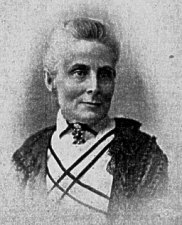
Mrs. Inglis is the helpmeet of the Rev. David Inglis B.A., the respected and loved pastor of Finch Hilll.Congregational Church Douglas. Prior to marriage she was a Miss Fletchert, and her maternal grandfather was the Rev. Samauel Haining who introduced Congregationalism into tlto Isle of Man. Mrs. Inglis takes a great interest in Church work and is held in high esteem by the members of her husband's congregation. To mark his completion of 25 years service as pastor of Finch Hill Church, Mr Inglis was early last year (1904) presented by the congregation with a hansome testimonial, and Mrs Inglis was at the same time given a valuable present. Subsequently she accompanied her husband upon a European tour
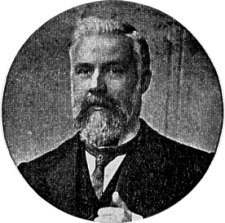
CAPT. William Henry Kitto, the genial and able manager of the famous foxdale Mines, is one of the best known and most esteemed men in the Isle of Man. He was first returned to the House of Keys as one of the members for Glenfaba Sheading at the bye-election held over two years ago, and he was again returned unopposed at the last General Election. Capt. Kitto is a Justice of the Peace, and a member of the Institute of Miners and Metallurgists, London.
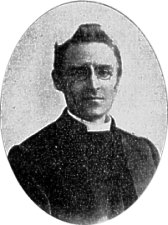
The Rev. Walmsley Stanley belongs to a Lancashire family, and is the second son of Walmsley Stanley, Esq., C.E. He was ordained deacon by the Bishop of Sodor and Man on Trinity Sunday, 1892 and appointed Curate of St. Barnabas', Douglas, by the Rev. Canon Hobson, M.A. ; being ordained Priest on May 20th, 1904. In May, 1895 he left the Island to become Curate of the parish of St. Mary's Wonmbwell, Yorkshire, under the Rev. R. B. Blakeney, M.A., where he remained 2½ years. On January 19th:, 1897, he was instituted to the living of St. Peter's, Bengeworth, by Dr. Knox, Bishop of Coventry (now Bishop of Manchester). In February, 1904, he returned to the Isle of Man, being appointed by his Excellency the Leutenant-Governor to the living of Kirk Onchan.
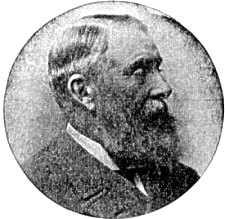
LIEUT.-COL. William James Anderson has since 1886 been Receiver-General of the Isle of Man. For very many years he served the late Queen Victoria as a soldier, and spent a long tirne on foreign stations. He is a man of considerable practical experience, and this he employed to good purpose the while he was Chairman of the Highway Board. In the interval between his retirement from the Army and his appointment as Receiver-General he was for some time a member of the House of Keys.
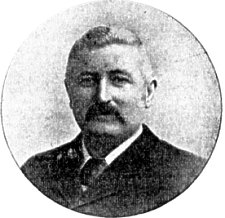
Mr W. A. Hutchinson, of The Groves, is Captain of the Parish of Marown. Upon completing his education he spent some time in Yorkshire, where he engaged in business, but he ultimately returned to the Island of his birth and settled in the old home. For some years past he has been one of the representatives of Middle Sheading in the House of Keys. He takes a great interest in sport, agriculture, and commerce, and is a director of the Isle of Man Banking Company and the Isle of Man Railway Company, and chairman of the fisheries Board. Mr Hutchinson is a Justice of the Peace.
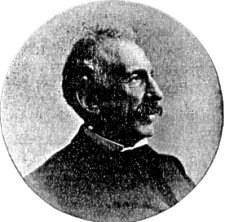
MR. Radcliffe was returned to the House of Keys as one of the members for Ayre at the last General Election. He is the eldest son of the late Thos. Radcliffe, of Ballaradcliffe, Andreas; and his family have owned the estate in unbroken succession since 1540. Mr. Radcliffe has been in turn a member of the School Board, Parish Commissioners, and Setting Quest (being foreman of the latter). He is a life-long total abstainer, and went into the House as a temperance candidate. He has been a Wesleyan local preacher for 30 years. Mr. Radcliffe is distinctly Liberal in his politics, and strongly in favour of progress
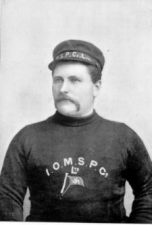
THE late David Kewley, better known as ' Dawsey", gained during his career more than Insular fame by his heroism. He saved some thirty lives from drowning, and he was as modest in demeanour as he was brave in action. For many years he was a boatman in the employ of the Isle of Man Steam Packet Company, and he was much respected by the officials of that concern. In his younger days he was a famous oarsman. "Dawsey" died in March 1904, and it is proposel to erect a memorial of his brave deeds in his native town of Douglas. Towards this object there is a sum of £109 to the credit of a fund of which the Town Clerk of Douglas is treasurer
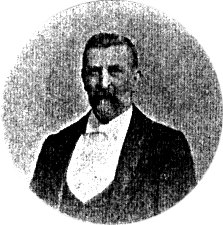
MR. Fielding is by birth and training a, Douglas man. He was from 1879 in charge of St. George's Schools,Athol Street; opened Hanover-street Boys' School in 1889; and has since given valuable service to the Douglas School Board, being at present the headmaster of the palatial schools in Murray's Road (mixed department).
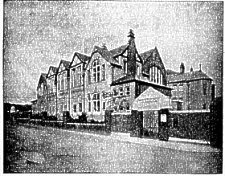
THESE are the newest and finest of Douglas schools; opened in 1899 with accommodation for 1,024 children. The principal of the Infants Department is Miss C. E. Bell, LL.A.
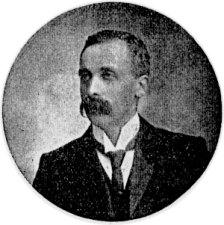
Mr Ridge, who is a native of Sheffield is the headmaster of Tynwald-street Schools. His first insular appointment was to the Peel Wesleyan Day Schools. His creditable record tlere gained for Mr. Ridge promotion to Thomas-street Wesleyan Schools, Douglas, after whichl he joined the staff of the School Board of Douglas.
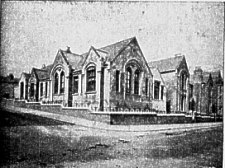
These were the first Board Schools erected in Douglas They were opened in 1884 and have accomodation for 730 children. The principal of the Girls' Department is Miss Jones; and of the Infant's Department,, Miss G. Collister.
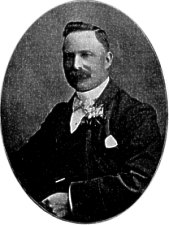
Mr. J. T. Griffin is the eldest son of Mr. T. Griffin, of Ballakilpheric Arbory. He, emigrated to New Zealand about 20 years ago, and after working in various capacities in different towns, settled at Blenheim, Marlborough, one of the richest agricultural districts in the South Island, where he conducts a large produce and grain business, and also farms. He was made a J.P. in 1904, and, as we go to press, we learn that he has been appointed a Commissioner, by the Department of Industries and Commerce for the district, for the Liverpool Exhibition of Colonial Produce. He leas been greatly assisted by his wife, who is a niece of Mr. William Watterson, of Colby.
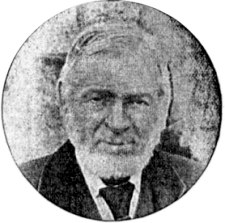
MR. William Quine is in point of years the oldest member of the House of Keys. He was returned as one of the members for Rushen Sheading almost fourteen years ago, and has ever since been one of the representatives of' that constituency. He is by calling a merchant miller, and his hobbies are the collection of old " querns," or handmills and arboriculture. A Liberal is he in politics, and there is not a more ardent temperance reformer in the Isle of Man.
|
|
||
|
Any comments, errors or omissions
gratefully received The
Editor |
||